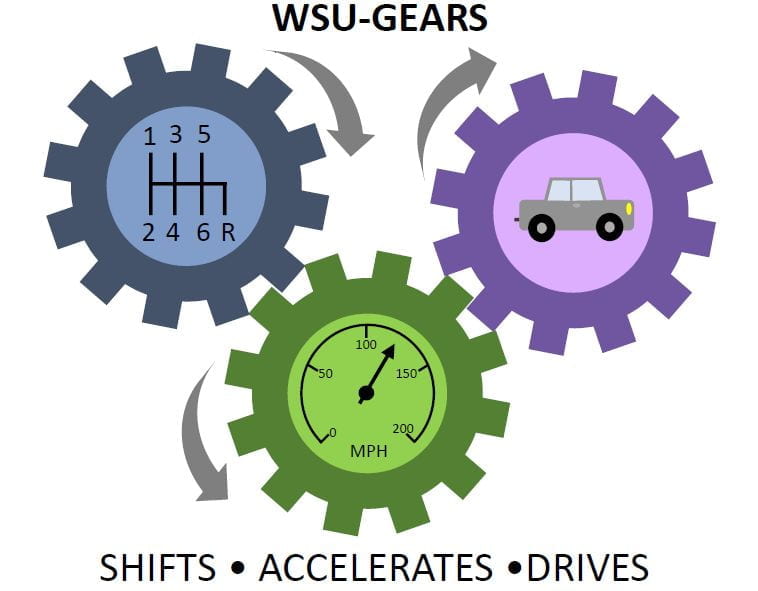Our Wayne State University (WSU) Gender Equity Advances Retention in STEM (WSU GEARS) ADVANCE Project adapts proven approaches from other ADVANCE institutions to transform the campus climate at WSU and reduce inequities for diverse women faculty members in STEM* disciplines through systemic change. Our WSU GEARS interventions tackle three barriers to the hiring and retention of women in STEM on our campus: (1) toxic work environment, (2) work/family/life strains, and (3) hidden workload burdens. To overcome these barriers, WSU GEARS adapts successful, evidence-based strategies and activities that have been developed under prior ADVANCE programs, through the following three integrated tracks:
- Wayne Drives: Collect nuanced data to drive Wayne Shifts and Wayne Accelerates programs and provide evidence-based information for faculty use;
- Wayne Shifts: Enhance existing WSU programs to shift the campus climate by expanding Chair and Dean training and piloting a hidden workload measuring tool;
- Wayne Accelerates: Create new WSU programs to accelerate systemic change, including bystander and train-the-trainer training programs, a Family Advocacy Network (FANs), and Networking for Women STEM faculty.
Our intervention approach is guided by a conceptual framework that combines theory, scientific evidence, and practices from evidence-based management. We begin with the premise that organizations are gendered structurally and that the underlying culture (e.g. shared beliefs) values certain bodies and behaviors. Understanding organizational inequities from an intersectional perspective is at the core of how we suggest building interventions. WSU GEARS aims to change elements of our institutional culture and organizational structures rather than the traditional and often flawed approach that assumes deficits on those who are disadvantaged by institutional structures and practices. To leverage WSU’s strengths, we have brought together a diverse, interdisciplinary team of faculty with interests and expertise in STEM, intersectional intervention, research, and theory to lead this program.
*STEM here refers to natural, physical, life, social, and behavioral sciences, technology, engineering and mathematics.



